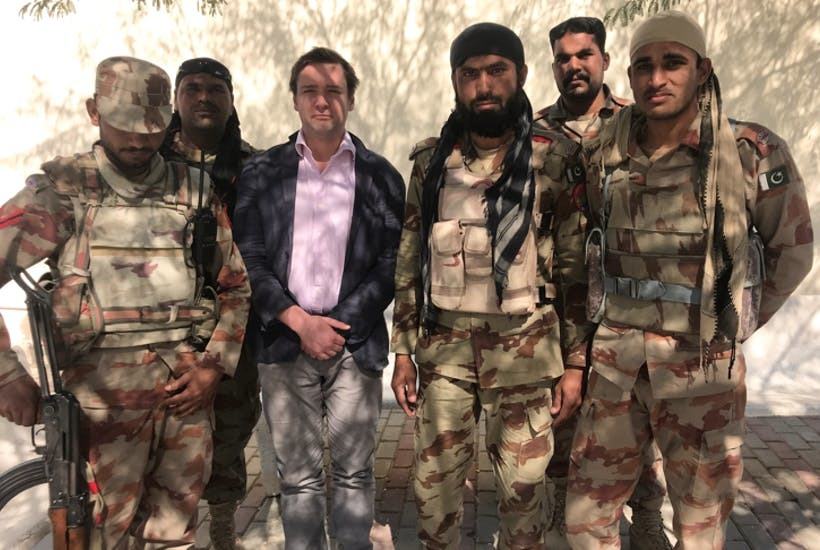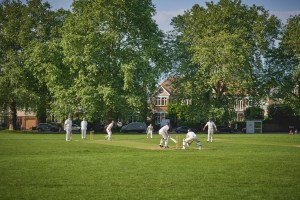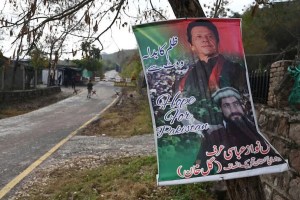Not so long ago, Barack Obama called Waziristan ‘the most dangerous place in the world’. It was the losing front in the war on terror, a lawless region in the Federally Administered Tribal Areas of Pakistan infested with Taleban and terrorism. Today, thanks to the Pakistan army, even a risk-averse hack like me can go there with scarcely a tremor. On Wednesday, as part of a British media delegation, I flew by military helicopter to Miranshah, the administrative HQ of north Waziristan. The soldiers took us to a newly built ‘markaz (hideout) re-enactment’ centre, which we quickly renamed Jihadi Disneyland. It is a true-to-life terrorist den, constructed by Pakistani soldiers with extraordinary attention to detail. The idea, I think, is to educate future generations about the terrorists’ way of life. But it feels more like a show home for wannabe bin Ladens, featuring everything an aspiring holy warrior might want in his property. There’s an American Humvee parked in the courtyard, a massive weapons stash and a couple of goats tethered to a tree. There’s also a brightly decorated room for brainwashing child suicide bombers, with framed pictures of some of the 72 virgins awaiting the lad when he has done his duty. Plus some fruit. The pièce de résistance is a torture chamber in the underground tunnel network. ‘This is where they do the beheadings,’ said the proud colonel showing us round.

We then went on a bus tour of Miranshah, which is being reconstructed as a model Tribal Area town. The security forces talked about establishing ‘new normalcy’, but the atmosphere was strange, something like an enormous public school not quite ready for the new term. Miranshah has a sports ground, outdoor communal areas, educational facilities, a hospital, even a ‘tuck shop’. It was eerily empty. I couldn’t tell if that was because not many people really lived there or because the army, worried that we might be attacked, had shut the town down. ‘Why are all the signs in English?’ asked one of our group. ‘Oh that’s for the visitors,’ replied the colonel. ‘The locals, they know their way around.’
It’s vile to be cynical, especially in a country that has suffered so much. That same day, just six kilometres from where we were, two soldiers were killed in a rocket attack. Some 70,000 Pakistanis have now died — ‘embraced martyrdom’ is the official idiom — in the US-led war on terror. You can see why Pakistan’s government gets upset when Donald Trump accuses them on Twitter of harbouring terrorists and offering nothing but ‘lies and deceit’.
Our press trip, organised by the Institute of Strategic Studies in Islamabad, was meant to correct such misperceptions. We knew we were being spun, but it was impossible not to fall in love with the Pakistanis’ eccentric PR-style. In the Prime Minister’s office in Islamabad, Nasser Khan Janjua, the national security adviser, told us that Pakistan was ‘a scapegoat’. ‘Those who fight us blame us, those who side with us blame us,’ he said. He didn’t want to be gloomy, however, so for the last part of our interview he transmogrified into a representative of the tourism board and spent ten minutes showing us slides of his favourite parts of Pakistan.

If conspiracy theorising were a sport, Pakistan would be world champions. Everywhere we went, in Kashmir, Islamabad, Peshawar, Quetta and Karachi, we met people eager to talk about fake news ‘narratives’ and, of course, the deep wickedness of India. Over dinner in Islamabad, I chatted to a senior figure at the Ministry of Information. He was charming, perceptive, full of wacky ideas gleaned from YouTube and WhatsApp. He said that the British may have lost our empire but we still ruled the world with our minds. I said, if we were all so clever, I might have some idea what he was talking about. He laughed. Later, he revealed that he was a big George Galloway fan.‘I like him because he is fair,’ he said, and he did a convincing impression of his hero dressing down a woman caller on his radio show — ‘madam… madam.’ He also wanted to talk about Islam. ‘We are not extremists,’ he explained, ‘but we are fundamentalists. Are you scared?’ The answer was no: I just wished our civil servants were half as lively.
Peter Oborne, The Spectator’s associate editor, is something of a legend in Pakistan — as least among the defence establishment types we met. That’s because every year he takes a cricket team on a tour of the country. Last September, in Miranshah, they played a ‘Peace Cup’ match against an XI consisting of current or retired Pakistani internationals in front of a crowd of about 15,000. The Pakistan army turned the occasion into a PR stunt, since Pakistanis love cricket and the military elite wants young people to take up sport rather than global jihad.
I don’t want to detract from Peter’s efforts. Surely, though, our government should do one better and send the England cricket team over? Such a move would go a long way towards undoing decades of bad feeling. Yes, security would be a concern. But Brexit Britain is supposed to be all about being bold and open to the world. An England tour of Pakistan would be exactly that.
Freddy Gray is deputy editor of The Spectator.





















